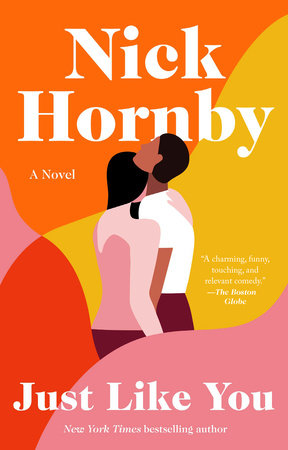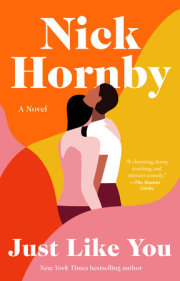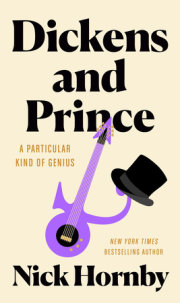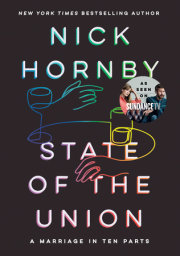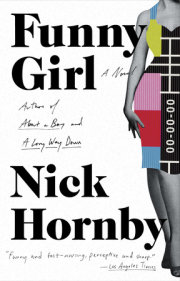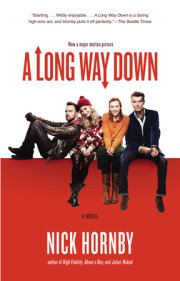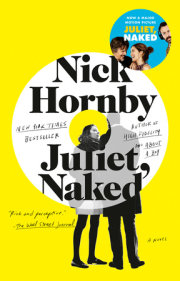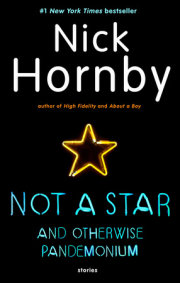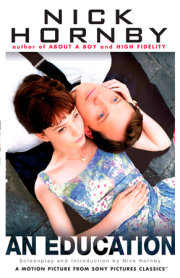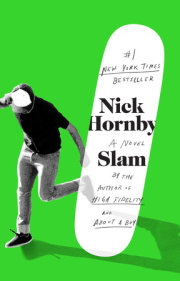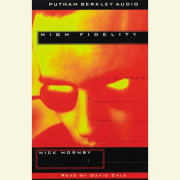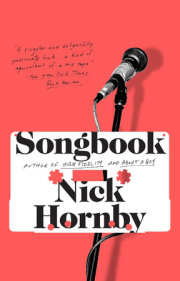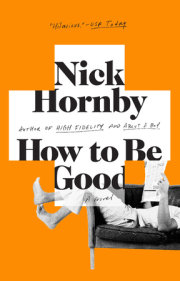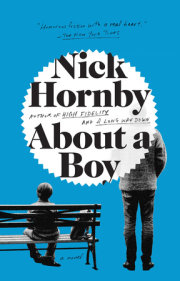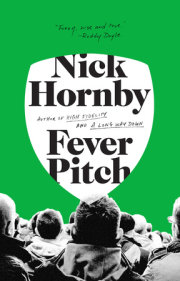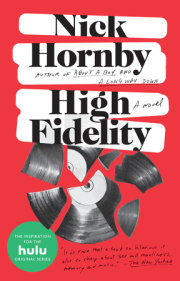Chapter 1
How could one say with any certainty what one hated most in the world? It surely depended on how proximate the hated thing was at any given moment, whether you were doing it or listening to it or eating it at the time. She hated teaching Agatha Christie for A-level, she hated any Conservative Education secretary, she hated listening to her youngest son’s trumpet practice, she hated any kind of liver, the sight of blood, reality TV shows, grime music, and the usual abstractions – global poverty, war, the imminent death of the planet, and so on. But they weren’t happening to her, apart from the imminent death of the planet, and even that was only imminent. She could afford not to think about them quite a lot of the time. Right now, at 11.15 on a cold Saturday morning, the thing she hated most in the world was queuing outside the butcher’s while listening to Emma Baker going on about sex.
She was trying to move out of Emma’s orbit, but the movement was imperceptible, and would, she guessed gloomily, take another four or five years yet. They had met when their children were small, and went to the same play group; dinners were offered and reciprocated and offered again. The children were more or less the same, then. They hadn’t developed personalities, really, and their parents hadn’t yet decided what kind of people they were going to be. Emma and her husband had chosen private primary education for theirs, and Lucy’s boys eventually found them insufferable. Social interaction eventually stopped, but you couldn’t do much about living near someone, shopping in the same stores.
It was a particular stage of the queuing that she hated: the point at which one was right outside the door, kept shut in winter, and one had to decide whether there was room inside the shop. Go in too early and you had to squash up against somebody while running the risk of anxious queue-jump faces; too late and somebody behind would toot her, metaphorically, for her timidity. There would be a gentle suggestion, a “Do you want to…” or a “There’s room in there now, I think.” That was what it was like: pulling out at an intersection that required aggression. She didn’t mind being tooted when she was driving, though. She was separated from other drivers by glass and metal, and they were gone in a flash, never to be seen again. These people were her neighbours. She had to live with their nudges and disapproval every Saturday. She could have gone to a supermarket, of course, but then she would be Letting Local Shops Down. And in any case the butcher was just too good, so she was willing to spend the extra. Her sons ate neither fish nor vegetable, and she had reluctantly decided that she probably did care about them ingesting antibiotics, hormones and other things in cheaper meat that might one day turn them into female Eastern European weight-lifters. (If they did eventually choose to become female Eastern European weight-lifters, however, she would fully endorse and embrace their decision. She just didn’t want to impose that destiny upon them.) Paul helped with the boys’ beef habit. He wasn’t mean about money. He felt guilty about everything. He kept enough to live on, if that, but he gave her the rest.
The tricky in-or-out part was probably another ten minutes away, though. The expense and the quality were attractive to the residents of this particular London borough, so the queues were long, and the customers took their time once they had forced their way inside. Emma Baker’s obsession with sex was happening right here, right now, and it was intolerable.
“You know what? I envy you,” she said.
Lucy didn’t reply. Terseness was her only weapon. From the outside it probably looked useless, because the words would keep coming, but any attempt to answer the question would result in an unstoppable torrent.
“You’re going to have sex with someone you’ve never had sex with before.”
This didn’t seem particularly enviable to Lucy, in the sense that if it happened, it wouldn’t be much of an accomplishment. It was, after all, a future open to most able-bodied people in the world, whether they chose to exploit the opportunity or not. But Lucy’s single status drew Emma back to the same subject over and over again. For Emma, married for many years to a man whose inadequacies, in the bedroom and in every other room, she made no attempts to hide or defend, divorce meant sex – paradoxically and/or idiotically, Lucy thought, seeing as her experience of divorce to date was that it meant no sex. In other words, Lucy’s divorce provided a screen on which Emma could project endless fantasies.
“What are you looking for? In a man?”
Either in real life or in Lucy’s head the queue had become stiller.
“Nothing. I’m not.”
“So what’s the point of tonight?”
“No point.”
The answers told a very small part of a very long story. Indeed, the words “nothing”, “not”, and “point” could even have been plucked at random from a very long story by some kind of textual artist, in order to convey a meaning ironically at odds with the storyteller’s intention.
“Hygiene,” said Lucy suddenly.
“What?”
“That’s what I’m looking for.”
“Come on, girl. You can ask for more than that.”
“Hygiene is important.”
“You don’t want handsome? Or funny? Or rich? Or good in bed? Someone with a penis that never lets him down? Someone who loves to give oral sex?” Behind them, somebody sniggered. Since the rest of the queue was by now entirely silent, there was a very good chance that Emma had been the trigger for the sniggers.
“No.”
Again, a very short answer that didn’t tell the whole truth, or any part of it.
“Well, that’s what I’d go for.”
“I’m learning more about David than I want to know.”
“He’s clean, at least. He smells like James Bond most of the time.”
“Well, there you go. He has none of the things you’re telling me to look for, and you’re still with him.”
Now she came to think about it – and she hadn’t really thought about it until earlier on that week – hygiene was more important than just about any other quality she could think of. Imagine that Emma were in a position to provide a potential partner who possessed every single idiosyncrasy and attribute that she wanted - or, at least, those that Lucy could think of, now, on the spot, in the queue for the butcher’s, when she didn’t even know what to say. Imagine that this unlikely man loved fresh flowers and the films of Asghar Farhardi, that he preferred cities to the countryside, that he read fiction - proper fiction, not novels about terrorists and submarines – that, yes, he enjoyed both giving and receiving oral sex, that he was kind to her sons, that he was tall, dark, handsome, solvent, funny, clever, liberal, stimulating. So this guy turns up to whisk her away to dinner somewhere quiet and smart and fashionable, and she notices straight away that he smells awful. Well, that was the end of it, wasn’t it? Nothing else would be of any use whatsoever. Bad hygiene trumped everything. So did unkindness, criminal records for or even merely rumours of domestic violence, and unacceptable views on race. Oh, and a dependency on drink and drugs, although that went without saying, given everything that had happened. The absence of key negatives was much more important than any positive.
Lucy noted glumly that they were approaching the crunch. It was chaos in there, she could see.
There was a double queue that now ended at the far end of the shop, so it wasn’t just a question of finding enough room just inside the door. Just inside the door was where those in the MIDDLE of the queue were standing, the U-bend in the snake, so in order to join the back of the queue one had to push one’s way through the crowd – and it was beginning to resemble a crowd, rather than a line – thus causing even more stress to both the pusher and the pushed.
“I think we can both get in there,” said Emma.
“There’s hardly room for one,” said Lucy.
“Come on.”
“Please don’t.”
“I think you can probably get in there,” said the woman behind them.
“I was just saying to my friend we can’t,” said Lucy sharply.
A couple emerged from the shop with groaning white plastic bags containing hunks of bloody meat which, if consumed over the next seven days, would prevent its bearers from lining up next Saturday because of their struggles with heart disease and bowel cancer.
Emma opened the door and went in.
“You let her in the queue,” said the woman behind.
Lucy had forgotten that.
“And now she’s inside and you’re not.”
There was a metaphor in there somewhere.
A hundred and twelve quid was a lot of money to spend on meat. Joseph wondered whether the couple would try and reduce the bill, get rid of the fillet steaks or the rolled loins, say, but they didn’t. And there was no flicker of anything when he told them what they owed. The first time he’d asked a customer for a three-figure sum he’d made an apologetic face – more like a grimace, really, as if he were about to cause the woman actually physical pain. But there was no pain caused, as far as he could tell, and he’d ended up feeling as if he’d done something clumsy. The next time it happened, he played it cool, but the guy felt obliged to explain – relatives coming, couldn’t afford to do that every week, and so on. The people who lived in the neighbourhood weren’t posh, in the sense that they wore jeans and didn’t sound like Prince Charles, but they obviously had money, and sometimes that seemed to create some kind of embarrassment. Joseph didn’t give a shit, really. He wanted what they had, and one day he would get it. Just because he earned a hundred and ten quid for a day’s work in the shop didn’t mean he hated people who spent a hundred and twelve on meat.
He was more worried by the loud blonde woman who’d pushed her way in when the three-figure couple left. She was trouble, of a very particular kind: every Saturday she tried to flirt with him. She made jokes about sausages and pork loins, and Joseph had no idea what he was supposed to say or do in return, so he smiled with his lips but not the rest of him. When it first started he tried to avoid serving her, but he quickly worked out that this was worse, because she’d ignore Cass or Craig or whomever it was who had to deal with her and joke with him about sausages anyway. So then the embarrassment became impossible, because it involved Joseph, his customer, the loud lady, and whoever was serving her. If he timed it right he could contain the trouble.
He didn’t have to do anything tricky. She was his next customer.
“Good morning, Joe.”
He wasn’t Joe. He was Joseph. It said so on his nametag. But recently she had decided that she needed to be on friendlier terms.
“What are you after?”
“Ah. Well. There’s a question.”
At least she had the decency to say it quietly, so only the three or four people immediately beside and behind her heard. They looked at him, to see whether he was going to play along. He gave the loud blonde woman his no-eyes smile.
“I know, I’m wicked,” she said. “Or I would be, given half a chance. Can I have half a dozen pork and leek sausages, please? Not chipolatas.”
Even that was supposed to be a joke.
“Gotcha.”
He got her the sausages, and then some sirloin steaks, and then four chicken breasts. She was going to say something about her breasts, or breasts in general, he could tell, so he talked over her.
“Cass, will you go out the back and tell them we need more sirloin?”
“Lucy.”
The loud blonde was gesturing at her friend, trying to get her to come to the counter, and the friend, smaller, prettier, dark hair, was waving her off and making an embarrassed face. It was as if the people in the queue were extras in a film about women who are best friends despite being the opposite. “I’ll see you outside,” said Lucy.
Loud Blonde shook her head in despair, as if her friend’s refusal to push through a crowd of people so that she could be served when it wasn’t her turn was precisely what was wrong with her in all areas of life.
“No helping some people,” Loud Blonde said to Joseph as she was entering her pin number, and she looked at him. He tried not to shudder.
“I could eat him up,” said Emma when they were both back outside.
“Who?’
“Joe. The kid who served me.”
“He didn’t look like he was interested in being eaten up.”
“He doesn’t know how I’d cook him.”
Lucy wasn’t sure this metaphor worked. Knowing how you were going to be cooked hardly made the prospect of being devoured more enticing.
“Don’t you think he looks like someone? Some sexy film star or singer? ”
“Maybe.”
“I know.”
Lucy knew Emma’s frame of reference, and it wasn’t broad. She had almost certainly been reminded of a young Idris Elba, or possibly a young Will Smith.
“A young Denzel Washington,” said Emma. “Don’t you see it?”
“Nope,” said Lucy. “But I can see that, of the three black faces available to you in your memory bank, he probably looks most like a young Denzel Washington.”
“I know loads more than three. I chose the person that actually looked like him.”
Emma was an occasional freelance interior designer, and Lucy would be amazed if she’d ever had a black client. All the other fields of endeavour that might have provided her with comparative options – sport, music, books, even politics – she had no interest in. Lucy had had enough conversations with kids and colleagues to understand how deep this sort of thing cut, but how did one even begin, with someone as oblivious and as unreflective as Emma? So she didn’t, and she wouldn’t.
They were walking home together. Emma lived two streets further on, in one of the larger houses down the hill. They had been neighbours, once upon a time, but after the separation, Lucy and the boys had moved to a smaller place.
“Are the boys with Paul this weekend?”
“Yes.”
“So if it does go well tonight…”
“I’m not going to sleep with anyone tonight.”
“You don’t know.”
“Have you ever been unfaithful to David?”
“Lucy! Really!”
“What?”
“You can’t ask that!”
“Because?”
“It’s private.”
The information Emma did not wish to divulge was that she had been entirely faithful to her husband for the duration of her married life, Lucy knew that. It was her deep, dark secret: that despite all the talk about eating people up and pork loins, Emma had done nothing and would never do anything. Yes, it was pathetic, but the truth was she was just another depressed and lonely married woman who wouldn’t give up on the idea that a young man might want to fuck her.
Copyright © 2020 by Nick Hornby. All rights reserved. No part of this excerpt may be reproduced or reprinted without permission in writing from the publisher.

